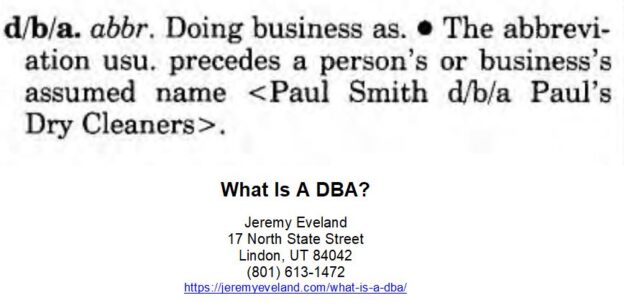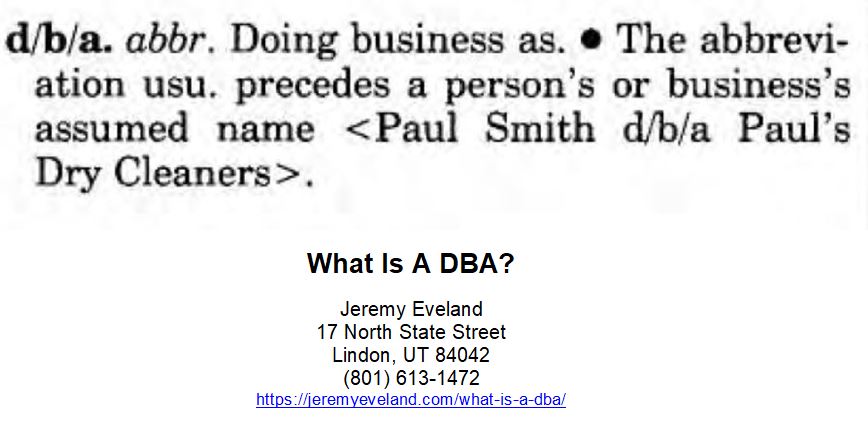“Protecting Your Business with Sound Commercial Law Solutions”
Introduction
Commercial Law is a branch of law that deals with the regulation of commercial transactions. It covers a wide range of topics, including contracts, sales, agency, negotiable instruments, secured transactions, bankruptcy, and other areas of business law. Commercial Law is an important part of the legal system, as it provides the framework for businesses to operate in a fair and efficient manner. It also helps to protect the rights of consumers and ensure that businesses comply with the law. Commercial Law is an ever-evolving field, and it is important for businesses to stay up to date on the latest developments in order to remain compliant.
Exploring the Different Types of Commercial Law
Commercial law is a broad area of law that encompasses a variety of legal topics related to business and commerce. It is a complex and ever-evolving field that covers a wide range of legal issues, from contracts and intellectual property to bankruptcy and antitrust. Understanding the different types of commercial law is essential for businesses of all sizes, as it can help them protect their interests and ensure compliance with applicable laws.
Contract Law: Contract law is one of the most important areas of commercial law. It governs the formation, performance, and enforcement of contracts between two or more parties. This type of law covers a wide range of topics, including the formation of contracts, the interpretation of contract terms, and the remedies available for breach of contract.
According to the legal dictionary, commercial law is the body of law that governs the conduct of business, including the formation and operation of corporations, partnerships, and other organizations engaged in commerce, the sale and distribution of goods and services, and related matters. This body of law also covers contracts, torts, and other legal issues related to the buying, selling, and exchanging of goods and services.
Intellectual Property Law: Intellectual property law is another important area of commercial law. This type of law protects the rights of creators and inventors by granting them exclusive rights to their creations. It covers a wide range of topics, including copyrights, trademarks, patents, and trade secrets.
Bankruptcy Law: Bankruptcy law is a type of commercial law that deals with the legal process of filing for bankruptcy. This type of law covers a wide range of topics, including the types of bankruptcy available, the requirements for filing for bankruptcy, and the consequences of filing for bankruptcy.
Antitrust Law: Antitrust law is a type of commercial law that seeks to protect competition in the marketplace. This type of law covers a wide range of topics, including the prevention of monopolies, the regulation of mergers and acquisitions, and the enforcement of antitrust laws.

Securities Law: Securities law is a type of commercial law that deals with the regulation of the sale and trading of securities. This type of law covers a wide range of topics, including the registration of securities, the disclosure of information to investors, and the enforcement of securities laws.
These are just a few of the different types of commercial law. It is important for businesses to understand the different types of commercial law and how they can affect their operations. By understanding the different types of commercial law, businesses can ensure that they are in compliance with applicable laws and protect their interests.
The Impact of Commercial Law on Business Transactions
Commercial law is a broad area of law that governs business transactions and other commercial activities. It is an important part of the legal system, as it provides the framework for businesses to operate in a fair and efficient manner. Commercial law is essential for businesses to understand and comply with, as it helps to ensure that transactions are conducted in a manner that is beneficial to all parties involved.
Commercial law covers a wide range of topics, including contract law, corporate law, bankruptcy law, and intellectual property law. It also includes laws related to the sale of goods, the formation of companies, and the regulation of financial markets. Commercial law is constantly evolving, as new laws are created to address emerging issues and to keep up with changing business practices.
Commercial law has a significant impact on business transactions. It provides the legal framework for businesses to enter into contracts, transfer ownership of goods and services, and protect their intellectual property. It also helps to ensure that businesses are able to enforce their rights and obligations under the law. Commercial law also helps to ensure that businesses are able to resolve disputes in a fair and efficient manner.
Commercial law also helps to protect consumers from unfair or deceptive business practices. It sets out the rules for how businesses must conduct themselves, and provides remedies for consumers who have been wronged. This helps to ensure that businesses are held accountable for their actions and that consumers are protected from unfair or deceptive practices.
Commercial law is an important part of the legal system, as it provides the framework for businesses to operate in a fair and efficient manner. It helps to ensure that transactions are conducted in a manner that is beneficial to all parties involved, and that businesses are held accountable for their actions. Commercial law also helps to protect consumers from unfair or deceptive business practices, and provides remedies for those who have been wronged.
Understanding the Role of Commercial Law in Contract Negotiations
Commercial law is an important part of contract negotiations, as it provides the legal framework for the agreement between two or more parties. It is important to understand the role of commercial law in contract negotiations in order to ensure that the agreement is legally binding and enforceable.
Commercial law is a body of law that governs the formation, performance, and enforcement of contracts between businesses. It is designed to protect the interests of both parties involved in the contract and to ensure that the agreement is fair and equitable. Commercial law also provides remedies for breach of contract, such as damages or specific performance.
When negotiating a contract, it is important to understand the applicable commercial law. This includes the laws governing the formation of contracts, the terms of the contract, and the remedies available for breach of contract. It is also important to understand the legal implications of any changes to the contract, such as modifications or amendments.
It is also important to understand the legal requirements for the contract to be legally binding. This includes the need for both parties to have the capacity to enter into a contract, the need for consideration, and the need for the contract to be in writing.
Finally, it is important to understand the remedies available for breach of contract. This includes damages, specific performance, and other remedies. It is important to understand the remedies available in order to ensure that the agreement is enforceable and that the parties are adequately protected.
Understanding the role of commercial law in contract negotiations is essential for ensuring that the agreement is legally binding and enforceable. It is important to understand the applicable laws, the legal requirements for the contract to be legally binding, and the remedies available for breach of contract. By understanding these aspects of commercial law, parties can ensure that their agreement is fair and equitable and that their interests are adequately protected.
Analyzing the Benefits of Commercial Law for Businesses
Commercial law is an important part of the legal system that governs business activities. It is a complex and ever-evolving body of law that provides businesses with the legal framework to conduct their operations. By understanding the benefits of commercial law, businesses can ensure that their activities are conducted in a manner that is compliant with the law and that their rights are protected.
One of the primary benefits of commercial law is that it provides businesses with a clear set of rules and regulations that must be followed. This helps to ensure that businesses are operating within the bounds of the law and that their activities are not in violation of any laws or regulations. This helps to protect businesses from potential legal action and provides them with a sense of security.
Commercial law also provides businesses with a set of legal remedies that can be used in the event of a dispute. This includes the ability to seek damages, injunctions, and other forms of relief. This helps to ensure that businesses are able to protect their rights and interests in the event of a dispute.
Commercial law also provides businesses with a set of legal protections that can be used to protect their intellectual property. This includes the ability to register trademarks, copyrights, and patents. This helps to ensure that businesses are able to protect their ideas and inventions from being copied or used without their permission.
Finally, commercial law provides businesses with a set of legal protections that can be used to protect their contracts. This includes the ability to enforce contracts and to seek damages in the event of a breach. This helps to ensure that businesses are able to protect their rights and interests when entering into agreements with other parties.
Overall, commercial law provides businesses with a number of important benefits. By understanding the benefits of commercial law, businesses can ensure that their activities are conducted in a manner that is compliant with the law and that their rights are protected.
Examining the Challenges of Commercial Law Compliance
Commercial law compliance is a complex and ever-evolving area of legal practice. Companies must ensure that their operations are in compliance with the applicable laws and regulations in order to protect their interests and avoid costly penalties. This article will examine the challenges of commercial law compliance and provide guidance on how to ensure compliance.
The first challenge of commercial law compliance is understanding the applicable laws and regulations. Companies must be aware of the laws and regulations that apply to their operations in order to ensure compliance. This can be a daunting task, as the laws and regulations can be complex and ever-changing. Companies must stay up to date on the latest developments in order to remain compliant.
The second challenge of commercial law compliance is implementing the necessary procedures and processes. Companies must develop and implement procedures and processes to ensure that their operations are in compliance with the applicable laws and regulations. This can be a time-consuming and costly process, as companies must ensure that their procedures and processes are effective and up to date.
The third challenge of commercial law compliance is monitoring and enforcing compliance. Companies must ensure that their operations are in compliance with the applicable laws and regulations. This requires ongoing monitoring and enforcement of the procedures and processes that have been implemented. Companies must also be prepared to take corrective action when necessary to ensure compliance.
Finally, companies must be prepared to respond to changes in the applicable laws and regulations. Companies must be aware of changes in the laws and regulations and be prepared to adjust their procedures and processes accordingly. This can be a difficult task, as companies must be able to quickly and effectively respond to changes in order to remain compliant.
Commercial law compliance is a complex and ever-evolving area of legal practice. Companies must ensure that their operations are in compliance with the applicable laws and regulations in order to protect their interests and avoid costly penalties. To ensure compliance, companies must understand the applicable laws and regulations, implement the necessary procedures and processes, monitor and enforce compliance, and be prepared to respond to changes in the applicable laws and regulations. By following these steps, companies can ensure that their operations are in compliance with the applicable laws and regulations.
Q&A
Q1: What is Commercial Law?
A1: Commercial Law is a body of law that governs the rights, relations, and conduct of persons and businesses engaged in commerce, merchandising, trade, and sales. It is also known as business law or corporate law.
Q2: What are the main areas of Commercial Law?
A2: The main areas of Commercial Law include contract law, sales law, business organizations, secured transactions, bankruptcy, and intellectual property.
Q3: What is the purpose of Commercial Law?
A3: The purpose of Commercial Law is to provide a legal framework for businesses to operate within, as well as to protect the rights of consumers and other parties involved in commercial transactions.
Q4: What are some common types of Commercial Law cases?
A4: Common types of Commercial Law cases include breach of contract, fraud, product liability, and antitrust.
Q5: Who enforces Commercial Law?
A5: Commercial Law is enforced by both state and federal governments. In addition, private parties may bring civil lawsuits to enforce their rights under Commercial Law.
Commercial Law Consultation
When you need legal help with commercial law, call Jeremy D. Eveland, MBA, JD (801) 613-1472 for a consultation.
Jeremy Eveland
17 North State Street
Lindon UT 84042
(801) 613-1472
Home
Related Posts
The 10 Essential Elements of Business Succession Planning
Utah Business Law
Business Lawyer
Mergers and Acquisitions
Advertising Law
Business Succession Lawyer Taylorsville Utah
Business Succession Lawyer South Jordan Utah
Purchase and Sale Agreement
Business Succession Lawyer Lehi Utah
Business Succession Lawyer Millcreek Utah
Business Succession Lawyer Murray Utah
Business Transaction Lawyer
Construction Law
Business Lawyer Salt Lake City Utah
What Is An Express Contract?
Antitrust Law
Salt Lake City Business Transaction Attorney
Business Succession Lawyer Herriman Utah
What Are The Advantages Of Hiring A Business Lawyer?
Business Succession Lawyer Logan Utah
Buy Sell Agreement
What Is The Relationship Between Business Law And Economies?
Litigation
Commercial Law











